The Wrong Man (1956)
Directed by: Alfred Hitchcock
Written by: Angus MacPhail, Maxwell Anderson
Starring: Anthony Quayle, Harold J. Stone, Henry Fonda, Vera Miles
HCF REWIND NO 263: THE WRONG MAN [1956]
AVAILABLE ON DVD
RUNNING TIME:106 min
REVIEWED BY:Dr Lenera, Official HCF Critic
Christopher Emmanuelle ‘Manny’ Balestrero, a musician at New York City’s Stork Club, is in a money crunch. His wife, Rose, needs to have her wisdom teeth extracted at a cost of $300, but the couple does not have that much money. Though he has already borrowed against his life insurance policy, Manny goes to the life insurance company to attempt to take a loan out against Rose’s policy. He’s immediately recognised by the staff as the man who had twice held up the insurance office. They inform the police, and he is taken to the 110th Precinct by detectives. Manny is then instructed to walk in and out of a liquor store and delicatessen, both scenes of a robbery earlier that year, then asked to give a handwriting sample, writing the words from the stick-up note at the insurance company. Manny misspells the word “drawer” as “draw” – the same spelling mistake the robber made….
Unusually for Hitchcock, The Wrong Man is an adaptation of a true story – in fact, it follows the real-life events to the letter except for a major alteration to the film’s coda after the main events of the film have taken place. Though the whole thing has the feel of a Kafka-esque nightmare, Hitchcock mostly handles the story in an almost documentary fashion, and its refusal to dramatise the events has probably been the major thing that has prevented the film from being regarded as top-drawer Hitchcock, but I think it almost belongs there. Genuinely frightening in a “‘it could happen to you” manner, quietly devastating to the point where it’s sometimes quite upsetting to watch, it sometimes feels more like a film from the Italian New Wave than a Hitchcock film, but it shows the director entirely comfortable in a more realistic milieu and totally committed to the material, while it’s certainly full of Hitchcock themes, most notably guilt and, of course, his favourite premise of a man wrongly accused by the police of a crime he didn’t commit, an idea which obviously haunted Hitchcock throughout his life starting from when he was a young boy. His father put him in a police cell for a short while to frighten him into not growing up to become a criminal.
Though he’d supposedly completed his contract with them, Hitchcock made The Wrong Man for Warner Bros. for no fee because in actuality he owed them a film. The true story of Manny Balestrero, who was wrongfully identified for committing some robberies, comprised a Life magazine article called A Case Of Identity, and had already been the subject of a TV movie in 1953 before Hitchcock became interested. He asked John Michael Hayes to work on the treatment and screenplay of this film for no salary but for a percentage of the profits like him, but Hayes declined and their four-picture relationship ended. Playwright Maxwell Anderson wrote the script, which was worked over by a temporarily sober Angus MacPhail. Determined to make his film as authentic as possible, Hitchcock utilised as many of the real-life locations as possible and even cast some of the people involved with the cast playing themselves. Whilst shooting in a prison amongst real inmates, one prisoner shouted to star Henry Fonda, “What’d they get ya for, Henry?” and you can just about hear it as well as a bunch of other prisoners laughing. Hitchcock filmed one of his usual cameos, standing in a restaurant as Manny sits, but decided it would detract from the intent of the film and appeared in a narrated prologue instead, telling the audience that what they will see is all true and very different from the usual Hitchcock film. In the event, it proved to be too different, the film not really being a commercial failure but certainly proving to be a hit either, while the critical reception was muted.
The first few scenes establish the pattern of Manny’s life before his nightmare begins. Hitchcock refuses to portray the detectives or policemen involved in Manny’s arrest and imprisonment as bad guys – they’re just folk doing their job – but they remain a little scary because the film often shows them just by their legs, adopting Manny’s point of view as the astonished, ashamed guy doesn’t want to look them in the face. The focus is on methodical detail as Manny is paraded before witnesses, is fingerprinted, makes the same mistake as the robber when giving a handwriting sample, is handcuffed [special emphasis on this, this being Hitchcock] and eventually thrown into a cell where, after Robert Burk’s cinematography, while adopting a film noir feel with lots of effective use of blacks and shadows, has generally emphasised still POV or long shots up to now, finally frees itself and the camera spins round Manny’s face showing how he feels. None of this is particularly enjoyable, but that’s not the intention. It is though, totally and utterly compelling, even if, after a while, we feel as worn down as Manny. Henry Fonda’s chiselled features have rarely been put to better use in this film. Manny is a guy who tends to keep everything inside, but Fonda, often by doing very little, shows superbly his bewilderment and sadness.
Manny is eventually freed on bail, and one can almost breathe the fresh air. He and his wife Rose hire a lawyer, who suggests they hunt down witnesses who can corroborate Manny’s account of where he was when the robberies he’s accused of took place, but nothing seems to go in their favour. Most movingly, Rose begins to have a breakdown. The scene of her going to a sanatorium, sadly commented on by Bernard Herrmann’s deeply poignant oboe theme, is one of the most moving in the career of Hitchcock. There’s a court room scene where a member of the jury cries: “Do we have to listen to this crap”? which seems silly but actually happened. Things do eventually change for the better and we get a brilliant shot of Manny praying dissolving into a man walking down a street towards the camera until his face becomes juxtaposed on top of that of his unfortunate look-alike. It is The Right Man. Actually, he doesn’t look that much like Fonda, but cases of mistaken identity where one person doesn’t much resemble the other when put right next to him or her do happen from time to time. Intelligently, there’s no sense of victory or release. Manny sees one of the eye-witnesses and all he can say is: “Do you know what you’ve done to my wife?”. Now this film closes on an optimistic coda which claims that Rose made a full recovery. Coming after another deeply sad sanatorium scene, it was understandably decided upon to cheer the audience up after sitting through such a austere, downbeat film. However, in real life, Rose never entirely recovered, though she got better.
Though he often displayed a healthily cynical attitude to the subject [which helps make I, Confess, the Hitchcock film which in some ways most resembles The Wrong Man, so tortured], Hitchcock was, deep down, a very religious man. His Calvinist upbringing was undoubtedly responsible for the strong themes of guilt, and its transference, in his work. It’s particularly strong in The Wrong Man, with both Manny and Rose feeling responsible for the way things have turned out. It’s unusual for Hitchcock to depict protagonists close to the majority of us who lead mundane lives and have money problems. His films up to now, even his darker ones, generally existed in a world of escapist glamour, but there are no cocktails and laughs here in what could be Hitchcock’s most humourless [even I, Confess had a few mild chuckles] film, except for the unintentional laughter caused by Manny saying that he’s 38 years old when Fonda is clearly considerably older than that. Back projection is reduced to a minimum here, only showing up outside a police car in which Manny is driven around in, and it’s not even that noticeable. Rich in detail and observation, The Wrong Man looks and feels virtually real and, though I’ve read material which claims the contrary, it doesn’t show obvious signs of Hitchcock losing interest in it at all, it just shows him trying a new approach to a story, though there are still moments of directorial flair, like a re-use twice of Stage Fright’s dolly through a front door.
Though seemingly stuck at first with the typical supportive role, Vera Miles eventually does match Fonda with the later scenes in which she goes off the rails, a very convincing portrayal of a mental breakdown. Bernard Herrmann’s mostly minimalist score, with its double base beats for Manny and slight hints of jazz in the instrumentation [and one full dance piece in the opening credits, unusual for the determinedly anti-popularist Herrmann], excellently enhances the depressing, clammy atmosphere. The Wrong Man is almost a bit of an ordeal to watch, Hitchcock wanting you to feel like Manny throughout the film, and it really is quite scary. The possibility of an innocent man going to jail is all the more chilling for the fact that no-one gives perjured evidence or deliberately attempts to frame Manny. The witnesses genuinely believe that he is the guilty man, and the police remain dispassionate throughout, Manny being just another job for them. Though perhaps lacking much in the way of fireworks, The Wrong Man is a film of immense, if quiet, power and one of Hitchcock’s most human films. On October 1st this year, Manny had the street where he grew up re-named after him. “Manny Balestrero’s story is one example how we must continue to re-examine our criminal justice system,” said a council member giving a speech at the opening. Criminal justice systems are there to help and protect us but they can sometimes go so wrong.

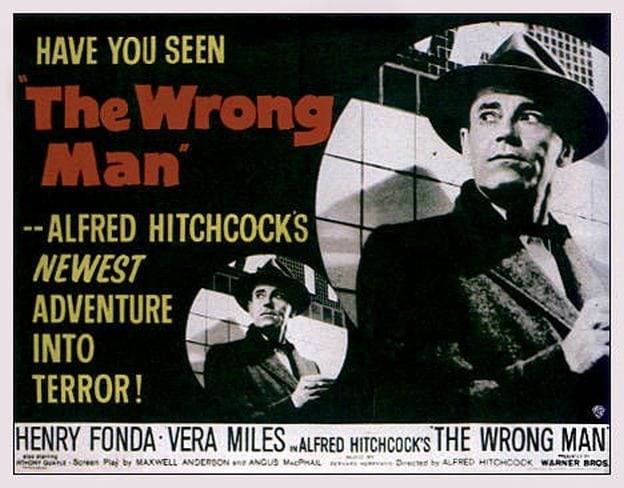
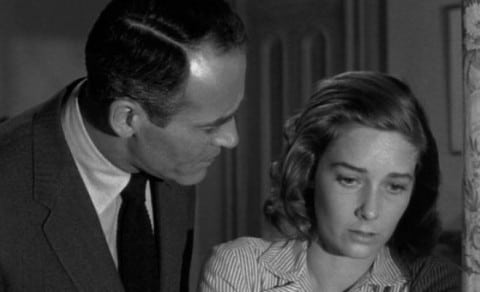
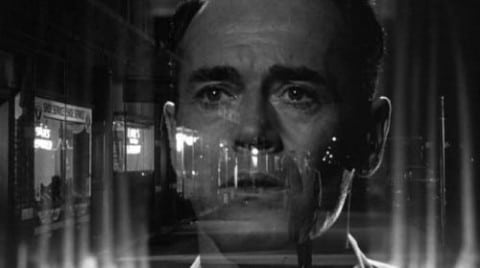




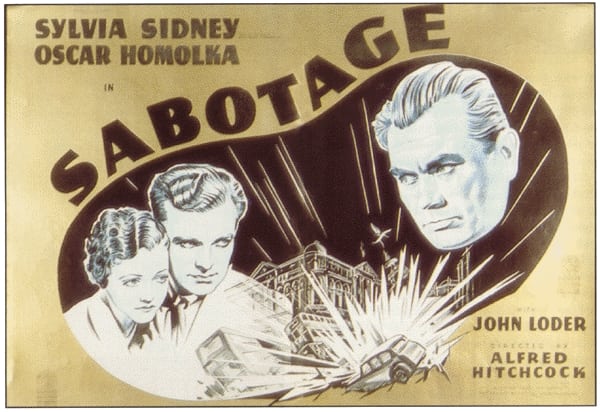
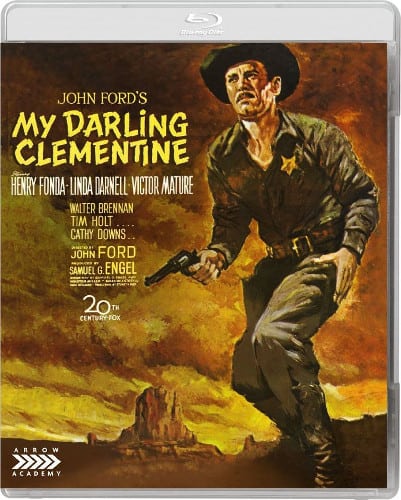
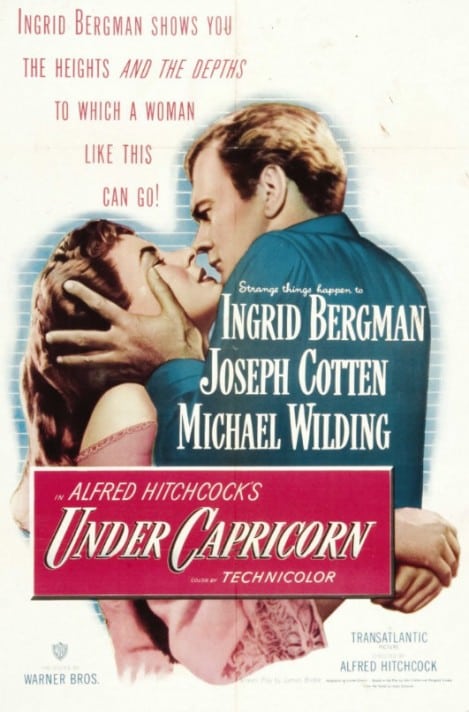
Be the first to comment